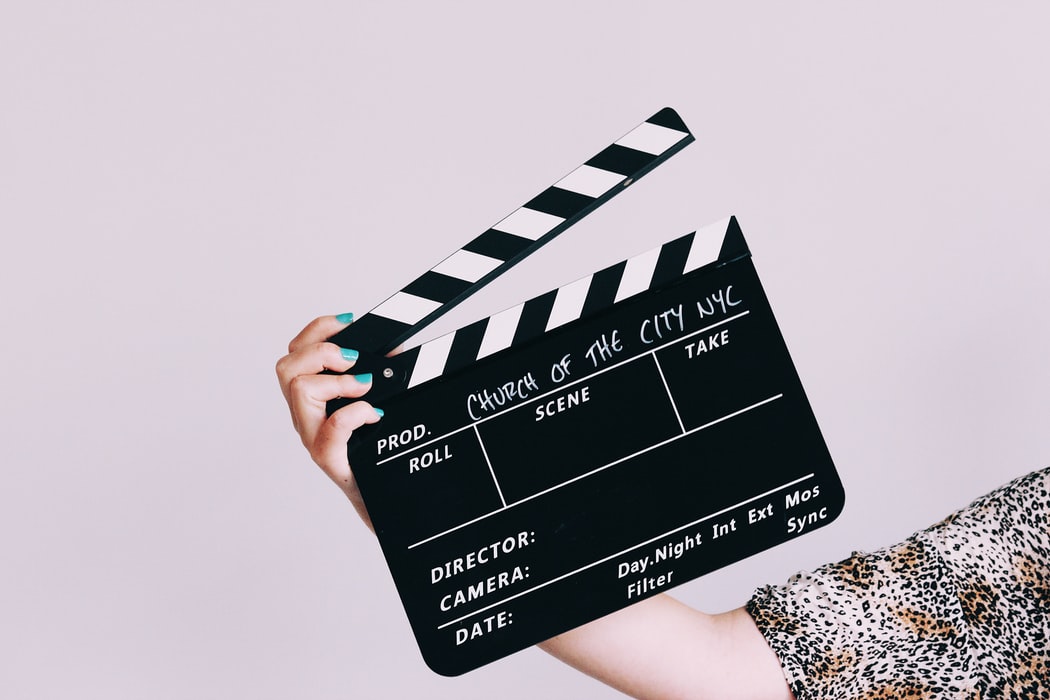What is a Background Actor?
Commonly referred to as an “extra”, the background actor’s role is to help give a scene the illusion of a real-life situation
(by Tonya Tannenbaum)
 (Photo: Obregonia Torreto | Pexels)
(Photo: Obregonia Torreto | Pexels)
A “background actor” is an actor who performs in view of, but usually away from, the foreground, in a non-speaking or non-singing capacity. Commonly referred to as an “extra”, the background actor’s role is to help give a scene the illusion of a real-life situation.
If you’ve ever watched a “street scene” on a television show or movie and watched people moving about in the background; folks walking to work, people waiting to catch the bus, street vendors waiting to make a sale and cars moving up and down the street, then you already know what a background actor is. They perform very basic acting roles like “walking” or “working” or “eating” or “chatting” behind the main action, while the lead actors, the ones who have dialogue, perform their roles.
Background actors help bring authenticity to the scene. While they don’t audibly speak or sing during the scene they are, nonetheless, vital to making the scene look like real life. In fact, imagine how a street scene would look if background actors didn’t exist or were not used in the scene. The main characters would be standing on the street conversing, pretending to exist in their imaginary world. That world, however, would resemble a ghost town. Nothing would be happening in the scene beyond the main characters and their conversation.

No matter how interesting and realistic the conversation, the scene itself would fall flat. Ironically, rather than being inconsequential, the lack of background action would actually become a major distraction. The audience would begin to wonder why two characters are standing on a sidewalk, in what is supposed to be a busy time of day, having a conversation while the streets are completely empty. The scene would no longer be believable.
Background actors are also referred to as “atmosphere”, “background artists”, or simply, “background”. In some instances, they are referred to “supernumeraries” or “supers”.
5 Benefits of Being a Background Actor
The real question is, why would anyone NOT want to be a background actor?
(by Jim Webb)

(Photo: Jon Tyson/Unsplash)
Who the heck would want to be a background actor?
The real question is, why would anyone not want to be a background actor (sometimes referred to as an “extra”)? Especially when you’re just beginning your acting journey.
Background acting is arguably the best “starter job” an actor can have. It is jam packed with benefits that can make an actor’s career, and life, better and more enjoyable.
RELATED
5 Reasons Why Background Acting is a $hitty Job
Here are just a few benefits:
#1: Gaining experience
There is simply no easier way for a new actor to gain experience in the game than to become a background actor. Sure, an actor can gain more training and education in an acting class. But, for a quick and easy way to gain experience on a professional set, with professional actors and a professional crew, nothing can match background acting.
Even if an actor is lucky enough to leave school and immediately become a working actor, it still might not give the actor the variety of experiences that working background can offer, at least in the very beginning. Bouncing around from set to set, seeing lots of professional actors perform, cannot be matched by anything else.
#2: Gaining union membership
One great benefit of background acting that some actors don’t know about is, it’s a backdoor way to get into SAG-AFTRA. Actors don’t actually have to be “Taft-Hartleyed” to get into the union. An actor can be “vouchered” into the union.
In that scenario, a non-union actor is chosen to work a union background job. If the actor can manage to rack-up at least three of those union vouchers, they will become eligible to join the union.
It’s not easy, but it happens more often than you think.
#3: Gaining knowledge and making connections in extras holding
In all large productions, there exists this magical place called “extras holding”, although it may go by many different names. In extras holding, there are lots of would-be actors waiting around to be called to set. While waiting, many conversations are taking place. And a lot of those conversations are centered around the entertainment industry.
Many questions are asked and answered, like:
“What’s the best place to get my headshots?”
“Which agencies should I try to sign with and which agencies should I avoid?”
“Which acting classes are good and which ones are useless?”
Extras holding is a terrific place for new actors to exchange information and get up to speed on the business. And, while in extras holding, actors and would-be actors have lots of free time on their hands to socialize and interact. In the process, lots of industry connections and friendships are formed.
If you’re moving to a city like Los Angeles or New York to pursue a professional acting career, forming these bonds and connections in extras holding can be a valuable opportunity.
#4: Gaining perks (money, bumps, free food, free coffee)
One great reason to do background acting in the beginning of your acting career is, of course, money. Background actors get paid to do “crosses” and perform other simple actions to keep a scene alive and to make it look like real-life. And they get paid reasonably well for it, relative to the work performed.
Plus, there are other perks. Background actors usually receive free food and coffee, along with “bumps”, extra financial compensation for things like using their vehicles in a scene, being around smoke or performing a special request.
Background actors can also get “upgraded” to a larger role, such as “featured extra” or, in some cases, they can obtain a small speaking role.
#5: Gaining confidence

How cool is it to work on a set with Christian Bale or Johnny Depp or Jessica Chastain? How amazing is it to see a celebrity you grew up watching perform live, right in front of you?
Not only is it an amazing experience, it is also a confidence-booster. Seeing how the pros do it can give a new actor a certain sense of confidence. You may discover that being a professional, working actor is not as intimidating as you thought. After all, you just saw your favorite actor perform live.
You think: “I can do that!”
5 Reasons Why Background Acting is a $h*tty Job
Let us count the ways…
(by Jim Webb)

Recently, I listed five benefits to beginning your acting career as a background actor. To be clear, the emphasis is on the word “beginning”. Beginning your acting career as an “extra” is fine as long as it is temporary. But performing as a background actor for a long period of time is not a smart idea if you endeavor to be taken seriously as an actor.
Here are five reasons why background acting, in the long-term, sucks:
#1: Background actors get no respect
Actors who have lines in a production have larger roles. And they have gone through a more rigorous casting process. As such, they are harder to replace. Background actors, by contrast, have gone through a less strenuous evaluation process. And their roles are much less impactful. They are much more expendable. As a result, they tend to get treated like barnyard animals.
Background actors are sometimes herded about like cattle. As a matter of fact, the business actually has the nerve to call the casting of an abnormally large number of background performers a “cattle call”!
No respect!
#2: Background actors are not treated like real actors
Background acting is real acting, albeit a more rudimentary form of acting. It is still necessary for background actors to buy into the roles they play and perform them with seriousness and conviction, just like a “real” actor would.
Yet, background actors tend to have their performances devalued. Often, they are treated more like props than like actors. Some industry professionals are so disrespectful toward background actors that they label extras, “props that eat”.
Again, no respect!
#3: Background actors get no credit
Talent agents and casting directors don’t consider background acting to be worthy of discussion or evaluation. They usually don’t even want to see background roles listed on an actor’s resume. That’s true, even if the role is considered “featured background”, meaning the background actor had a more prominent role than the other “extras”. Their names never appear in the closing credits, leaving the background actor to claim an “uncredited” role, or none at all.
#4: Background acting is usually a dead-end
Let’s make something crystal-clear: You will (almost) never be “discovered” performing as a background actor!
Occasionally, an extra will get the opportunity to move up from background into a speaking role. This is usually referred to as an “upgrade”. But this is extraordinarily rare. Background actors rarely get upgraded into a speaking role. Usually, when you’re hired as background, that’s all you are and all you will be for that particular job.
If you want to be a serious, respected actor, your background acting career must come with an expiration date.
Don’t go into a background role hoping to get upgraded. Don’t ask for a speaking role. Getting cozy with the director won’t help. Getting to know the producer won’t help. Getting friendly with the main actors won’t help.
It’s just a dead-end!
#5: Background actors get branded as background
Beginning your career as a background actor makes sense, as long as you understand that it must be temporary. If you want to be a serious, respected actor, your background acting career must come with an expiration date.
If you remain in background, and become known in the industry for background work, your brand will be associated with background. You won’t be taken seriously as an actor. It could even hurt you down the road when you go in to audition for a show and the auditors remember you for all the time you spent in background, or as a stand-in.
Yes, background sucks. The treatment you’ll receive sucks and the disrespect is real. But, as a starter job in the industry – and only as a starter job – it’s worth putting up with the nonsense for a while.



